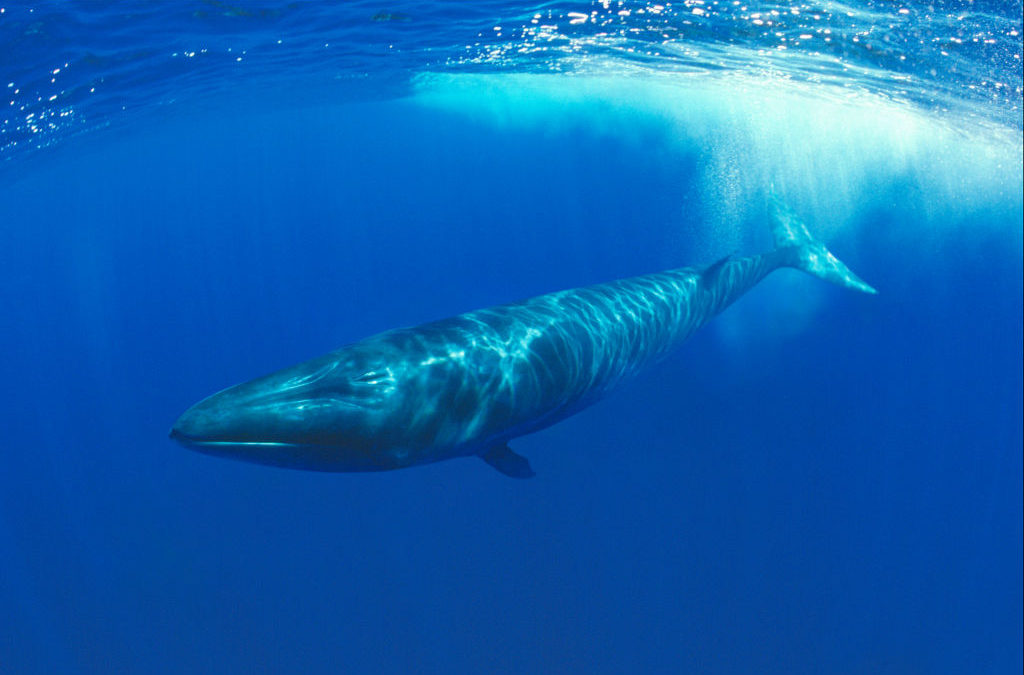(Leer noticia en Patagon Journal)
In the context of increasing cetacean mortalities in Chilean Patagonia, the stranding and subsequent death of a sei whale (Balaenoptera borealis) has been reported in the coastal area near the salmon fattening center of the company Granja Marina Tornagaleones, located in Paso Galvarino, Puyuhuapi channel, Aysen region.
On September 12, the National Fisheries and Aquaculture Service (Sernapesca) of Aysén received a report from a worker of this salmon farming company about a beached whale with a rope around its body. According to the information provided by the salmon company, the whale was bleeding and apparently alive, so a team of veterinarians from Sernapesca Aysén arrived to the site where the whale was stranded, and confirmed that the whale was alive and bleeding.
According to Sernapesca, the characteristics of the entanglement indicate that it was not recent, as the specimen had marks on the skin derived from a prolonged strangulation process. Moreover, they concluded through images obtained from an underwater robot that the injuries that caused the bleeding were not due to predators. Sernapesca has lodged a legal claim with the Puerto Aysén district attorney’s office so that the incident will be investigated.
Jorge Padilla, regional director of Sernapesca Aysén, told reporters that “unfortunately the specimen died and its body was submerged in the Puyuhuapi channel at a depth of 4 to 8 meters.” Added Padilla: “However, thanks to images obtained through an ROV we were able to confirm that the whale was of the sei species, 10 meters long, and that it was with a line. Although the line did not prevent it from swimming, it was around the body between the blowhole and the pectoral fins. We hope that an investigation by the district attorney’s office will clarify the facts.”
Sei whales, critically endangered species threatened by salmon expansion in Patagonia
The sei whale is a species that was classified in 2002 as endangered by the International Union for Conservation of Nature (IUCN), and as critically endangered in 2011. It is protected by international laws and conventions and by national legislation in Chile.
Among marine conservation researchers there are concerns about the continuing discovery of dead sei whales in salmon farming areas of Chilean Patagonia. In 2015, the stranding of 343 whales was discovered along the coast of the Gulf of Penas in Aysen, and 100 of those dead whales were sei whales. Its believed that the cause of death were either harmful algal blooms (HABs) or infectious agents related to salmon farming pollution.
In April 2020, the death of a sei whale specimen of approximately 15 meters in length was recorded, stranded on the side of a raft-cage of the Matilde 3 farming center, in the sector of Isla Matilde in Aysén, belonging to the company Australis Mar. This salmon farming center is located inside the Las Guaitecas National Reserve, part of Chile’s National System of Protected Areas. The specimen’s body was wrapped in ropes of different lengths, while a metal chain – corresponding to the anchorages and moorings of sea lion nets – surrounded its body.
In April 2022, following complaints from environmental groups, Sernapesca, together with personnel from the Skorpios Patagonia Business Group, extracted the carcass of a juvenile male sei whale that had beached itself under the loading and services dock used by the salmon industry in Puerto Natales. The whale’s body showed several injuries that would support a hypothesis that it had been struck by a commercial ship, whose number and traffic are on the rise in the fjords and inland channels of Patagonia.
Consumers and the U.S. Marine Mammal Protection Act: Key actors for whale protection in Chilean waters
Faced with the destructive and increasingly lethal interactions between fishing activities and salmon farming operations with marine mammals in Chilean waters, the Santiago-based marine protection group Centro Ecocéanos is calling on Sernapesca and the Undersecretary of Environment to “make transparent the results of the various judicial investigation processes, which in almost all cases do not end with the clarification of the facts and sanctions to those responsible.”
At the same time, Centro Ecocéanos and Centro de Conservación Cetácea are urging national and international consumers to not buy or consume Chilean farmed salmon, and request the U.S. government to apply the import rule stipulated in the U.S. Marine Mammal Protection Act, extra-national legislation that will be applied in Chile as of January 1, 2024.
Under this new scenario in international trade, the Chilean government must demonstrate to U.S. authorities that its fishery exports do not harm, or cause mortalities of marine mammals, in excess of U.S. standards in order for its extractive fishery and farmed salmon production to continue to enjoy access to the U.S. market.
